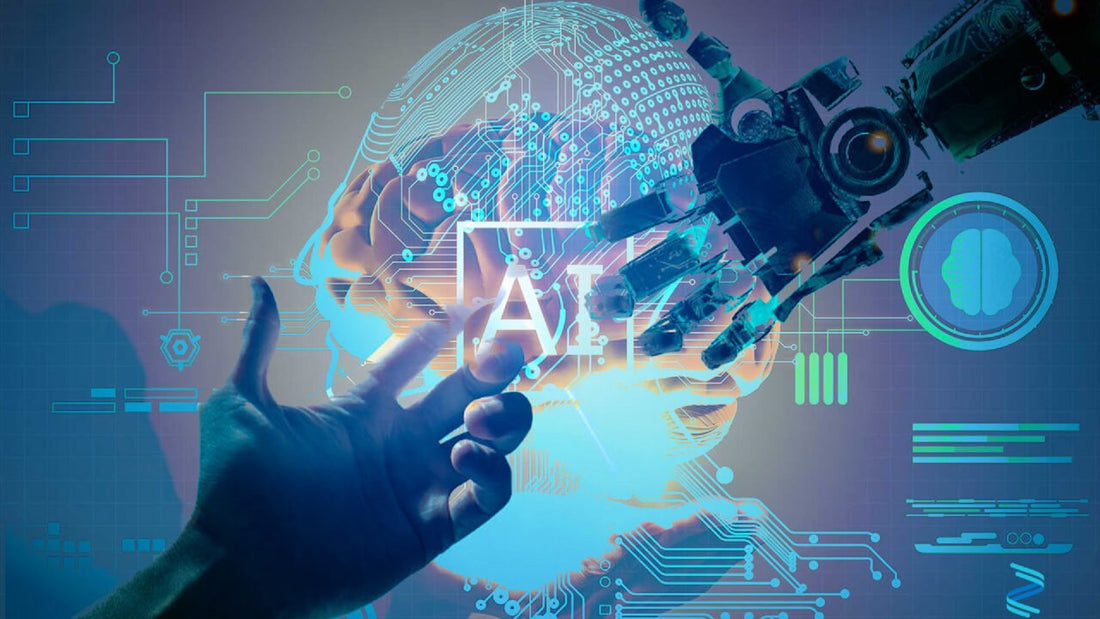
The Ethics of AI: Balancing Innovation with Responsibility
Share
Artificial Intelligence (AI) is rapidly transforming industries, economies, and societies by enabling new levels of automation, efficiency, and insight. However, as AI becomes more integrated into our daily lives, it also raises complex ethical questions. The challenge lies in balancing the incredible potential of AI with the need to ensure its development and deployment are responsible, fair, and aligned with societal values. This article explores the ethical considerations surrounding AI and the steps being taken to ensure that innovation in this field is guided by responsibility.
The Promise of AI
AI offers immense opportunities to improve human life across various sectors:
- Healthcare: AI is being used to diagnose diseases, develop personalized treatments, and manage healthcare systems more efficiently. Predictive analytics and machine learning models are enabling earlier detection of illnesses and optimizing patient care.
- Education: AI-powered tools are personalizing education, providing tailored learning experiences, and helping educators better understand students' needs. AI can also bridge gaps in access to quality education, particularly in underserved regions.
- Finance: In the financial sector, AI is enhancing fraud detection, automating trading, and improving risk management. AI-driven financial advisors are making investment management more accessible to a broader audience.
- Transportation: Autonomous vehicles, powered by AI, promise to reduce accidents, lower emissions, and make transportation more efficient. AI is also being used to optimize logistics and supply chains.
Despite these benefits, the widespread adoption of AI presents significant ethical challenges.
Key Ethical Concerns in AI
The ethical implications of AI are multifaceted, involving questions of fairness, transparency, privacy, and accountability:
- Bias and Fairness: AI systems are only as good as the data they are trained on. If the training data contains biases, the AI system may perpetuate or even exacerbate those biases. This can lead to unfair outcomes, such as discriminatory practices in hiring, lending, or law enforcement.
- Transparency: Many AI systems, particularly those based on deep learning, operate as "black boxes," making decisions that are difficult to interpret or understand. This lack of transparency can be problematic, especially in critical areas like healthcare or criminal justice, where the reasoning behind decisions needs to be clear and explainable.
- Privacy: AI relies on vast amounts of data to function effectively, raising concerns about data privacy and security. The collection, storage, and analysis of personal data by AI systems can lead to breaches of privacy and unauthorized surveillance.
- Autonomy and Control: As AI systems become more autonomous, questions arise about who is responsible when an AI system makes a mistake or causes harm. The issue of control is particularly relevant in the context of autonomous weapons, where AI could be used to make life-and-death decisions.
- Job Displacement: AI-driven automation has the potential to displace jobs, leading to economic inequality and social disruption. While AI can create new opportunities, the transition may be challenging for workers in industries most affected by automation.
Balancing Innovation with Responsibility
To address these ethical concerns, a variety of stakeholders—including governments, industry leaders, academics, and civil society—are working to develop frameworks and guidelines for responsible AI development:
- Ethical AI Frameworks: Several organizations have developed ethical guidelines for AI, emphasizing principles such as fairness, accountability, and transparency. These frameworks aim to ensure that AI is developed and deployed in a way that aligns with human values and rights.
- Regulation and Oversight: Governments are beginning to explore regulatory approaches to AI, focusing on areas such as data privacy, algorithmic accountability, and the use of AI in critical sectors. Effective regulation can help mitigate the risks associated with AI while allowing for innovation.
- AI Ethics Committees: Many companies and institutions have established ethics committees or boards to oversee AI projects. These bodies are tasked with ensuring that AI development aligns with ethical principles and that potential risks are identified and addressed early in the process.
- Public Engagement: Engaging the public in discussions about AI ethics is crucial. By involving a diverse range of voices in the conversation, policymakers and developers can better understand public concerns and values, leading to more inclusive and equitable AI systems.
- AI for Good: The AI for Good movement encourages the use of AI to address social challenges, such as poverty, climate change, and public health. By focusing on the positive impact AI can have, this approach seeks to harness AI's potential for the greater good while addressing ethical concerns.
The Path Forward
The ethical challenges of AI are complex and evolving, but they are not insurmountable. By fostering a culture of responsibility, transparency, and inclusivity in AI development, society can harness the benefits of AI while minimizing its risks. This requires collaboration across sectors, disciplines, and borders to ensure that AI serves the broader interests of humanity.
As AI continues to advance, it will be essential to regularly revisit and update ethical guidelines to reflect new developments and challenges. This iterative approach will help ensure that AI remains a force for good, driving innovation while safeguarding human rights and values.
Conclusion
AI has the potential to revolutionize many aspects of our lives, but with this potential comes a responsibility to address the ethical challenges it presents. By balancing innovation with a commitment to ethical principles, we can ensure that AI contributes to a fairer, more just, and more prosperous world. The path forward will require ongoing collaboration, vigilance, and a willingness to prioritize the well-being of individuals and communities as we navigate the complex landscape of AI ethics.
